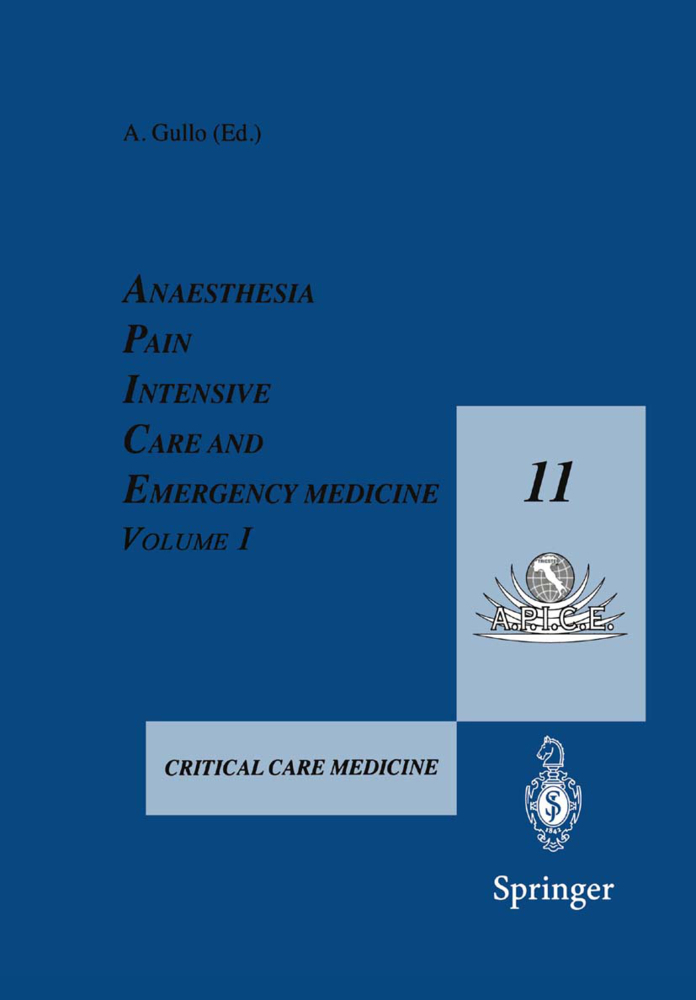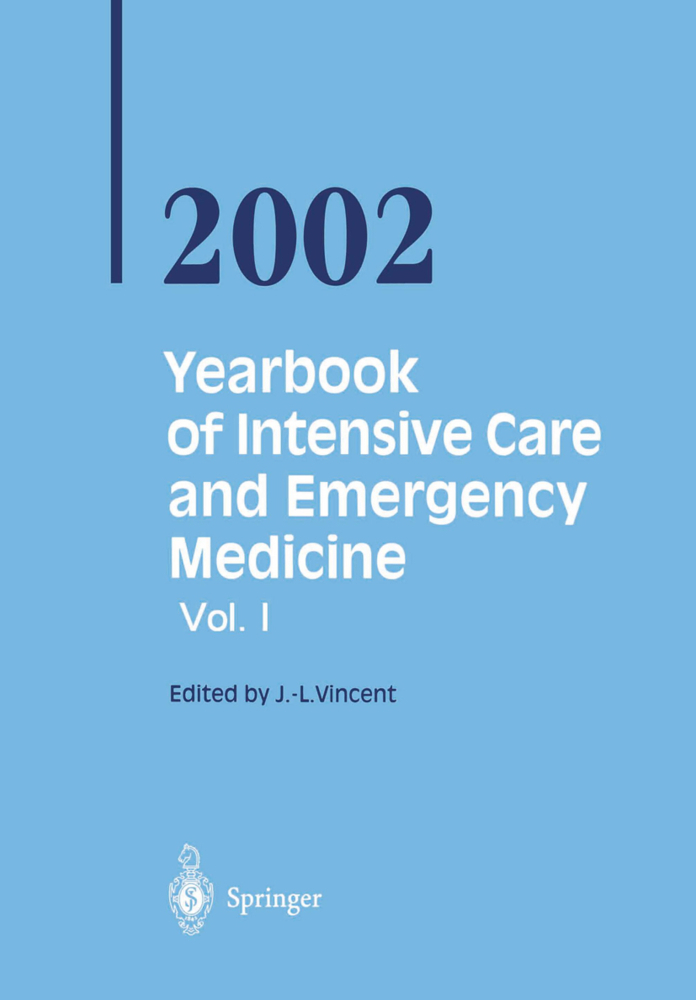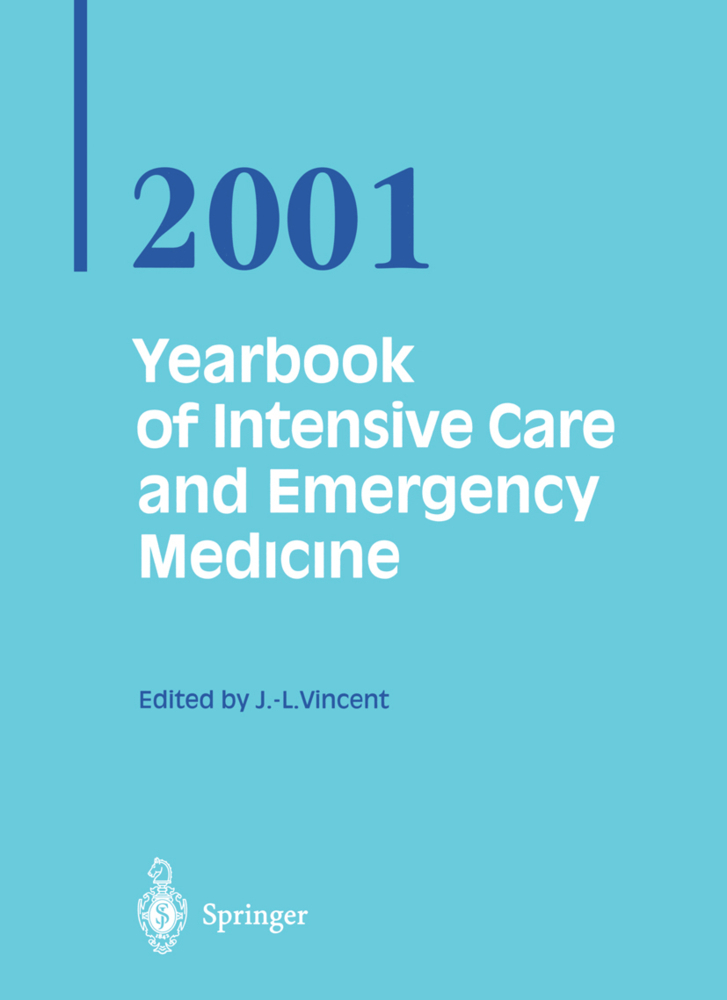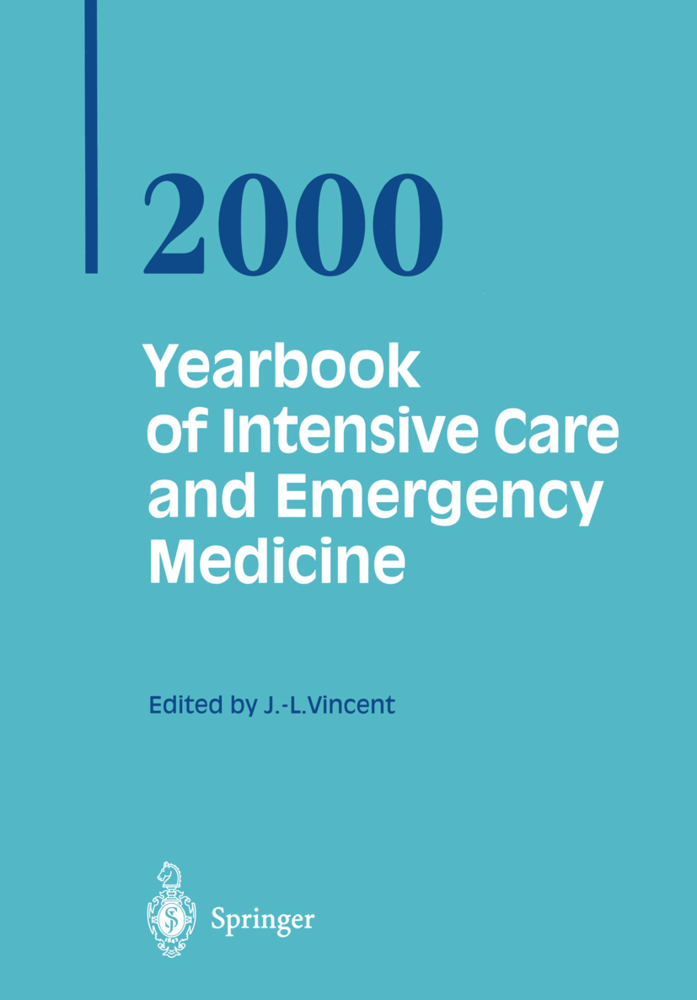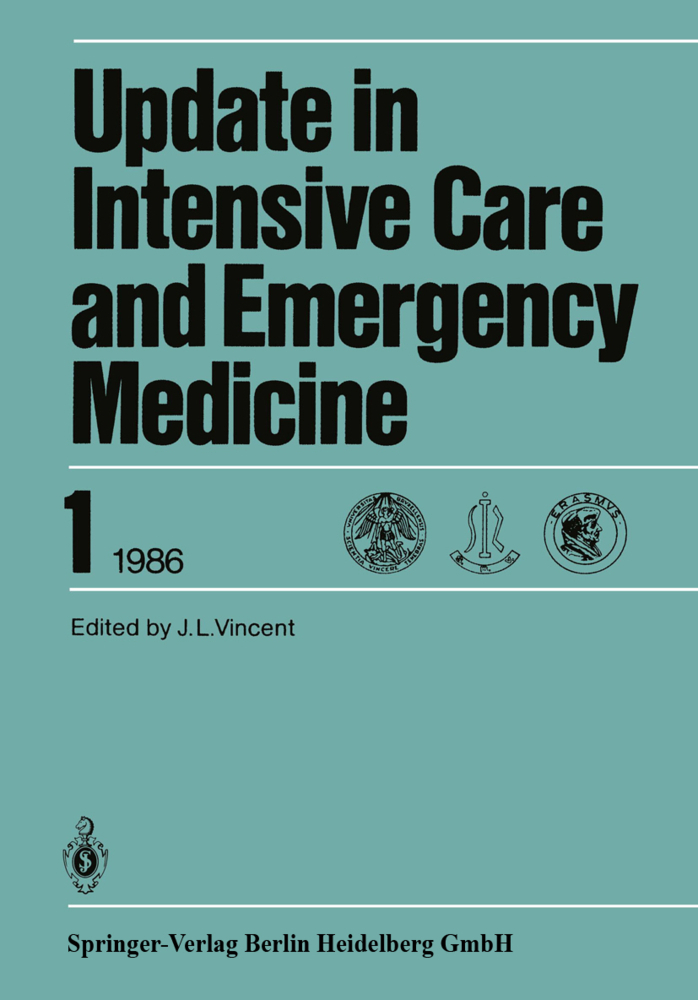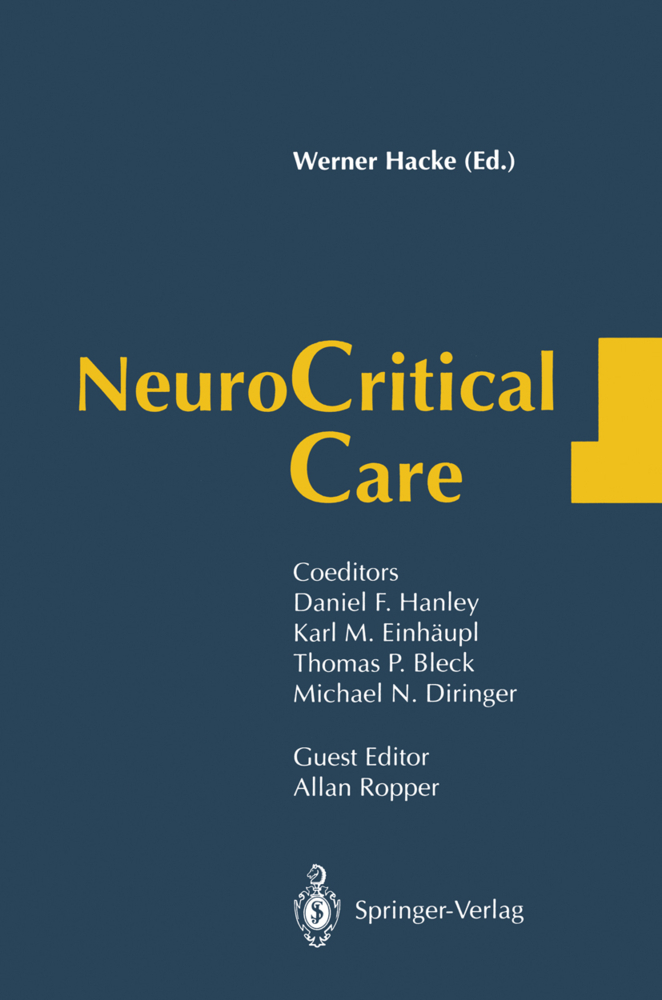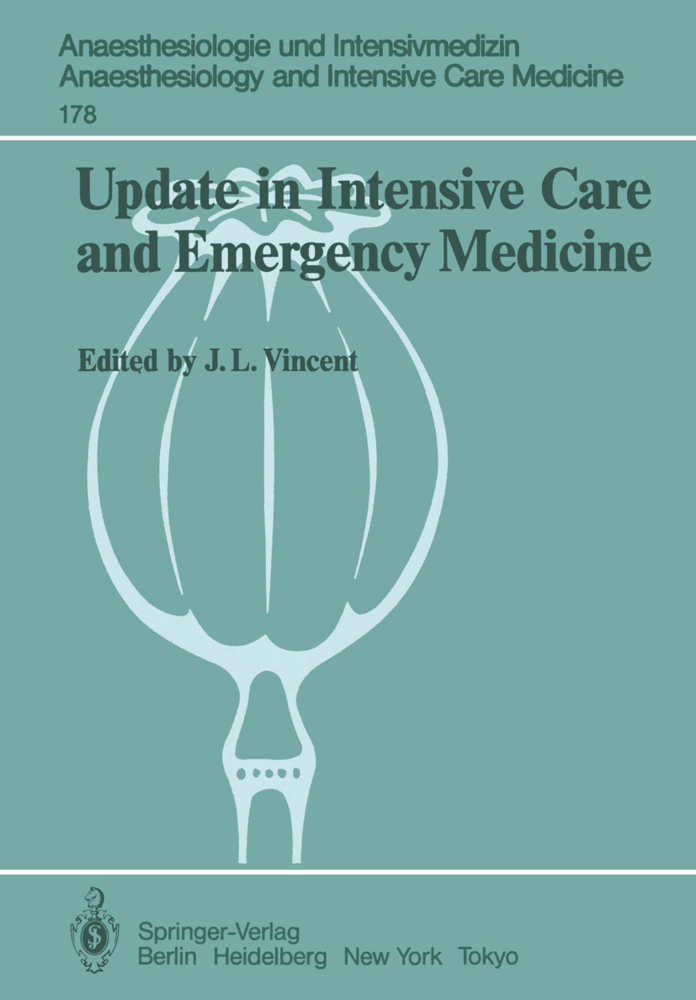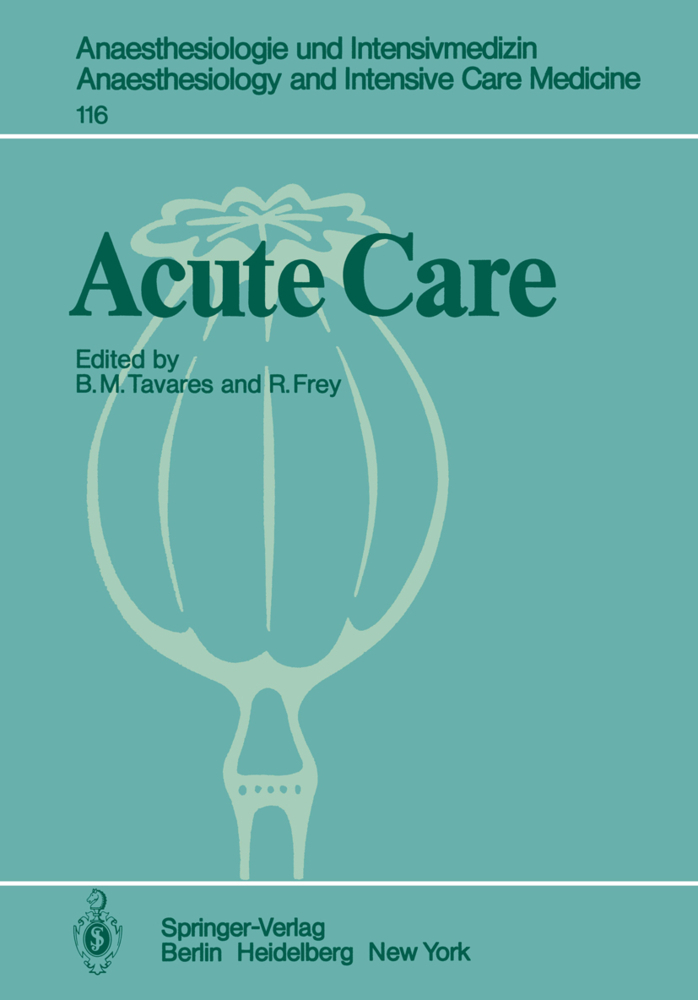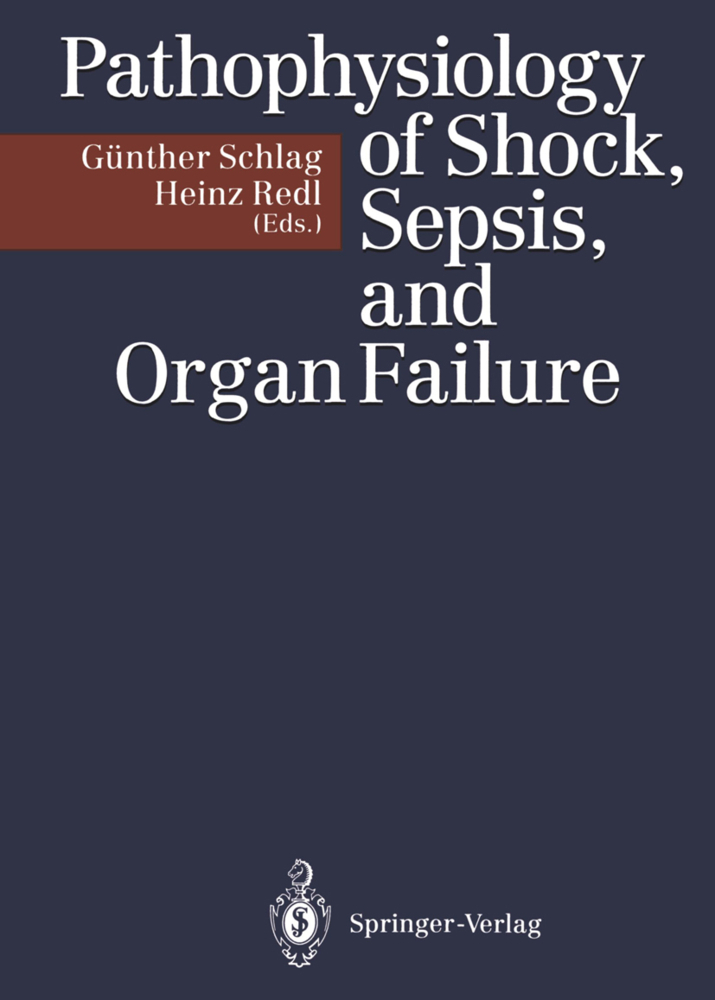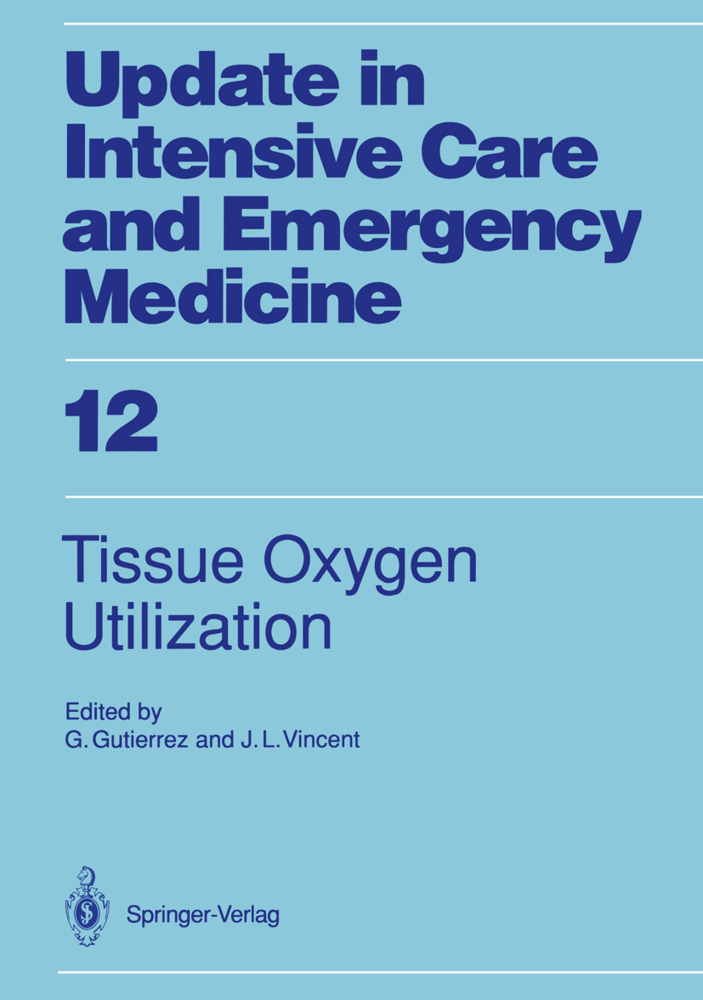Anaesthesia, Pain, Intensive Care and Emergency Medicine - A.P.I.C.E.
Proceedings of the 11th Postgraduate Course in Critical Care Medicine Trieste, Italy - November 11-16, 1996
Anaesthesia, Pain, Intensive Care and Emergency Medicine - A.P.I.C.E.
Proceedings of the 11th Postgraduate Course in Critical Care Medicine Trieste, Italy - November 11-16, 1996
At the APICE '96 research scientists and clinicians were provided with updated guidelines for the treatment of patients with acute and chronic critical conditions. This volume contains 100 chapters,in which the main pathophysiological concepts were reviewed, with special emphasis on the cardiovascular, respiratory, metabolic, and neurologic systems. Special reference is made to the pharmacologic and biotechnologic strategies currently being used to support those vital functions that are affected by severe and sometimes devastating diseases. The topics of infection, sepsis,and SIRS have been reviewed and updated in keeping with the most recent information available, and particular focus has been directed to ethics.
Continuous Measurement of the Systolic Time Intervals Integrated on a Hemodynamic Profile. Successful Method to Monitor Left Ventricular Function
Relationship Between the PetC02 and the Hemodynamic Parameter
Oxygen Transport and Cellular Mechanisms during Hyperbaric Oxygenation
Hyperosmolar Syndrome
Basic Components of Immune System Regulation
Growth Hormone in Critical Care Practice
Oxygen Consumption and Carbon Dioxide Production: Physiological Basis and Practical Application in Intensive Care
Clinical Aspects of Capnography
Capnography and Circulation
Pain Control: From Basic Research to Clinical Application
Theoretical Aspects of Respiratory Mechanics
The Effect of Age on the Cardiovascular Response to Stress
Heart Failure Due to Pressure Overload and Volume Overload
Choice of Pharmacological Agents in Hypoperfusion Syndrome
Monitoring of the Body Circulation - an Introduction
Evaluation of Cardiothoracic Parameters: The Clinical Role of Intrathoracic Blood Volume
ARDS Lung: Homogeneous or Non-Homogeneous Impairment?
The Baby Lung Philosophy
Lung Distention, Barotrauma and Mechanical Ventilation
Pulmonary Dysfunction after Ischemia-Reperfusion
Understanding the Incidence and Long-term Outcome of ARDS
Improved Perfusion Through the Aerated Part of the Lung by Prostacyclin Administration
Improving Ventilation by Reaeration of Atelectatic Regions with Perfluorocarbons
Experience in Liquid Ventilation
Improved Ventilation by Re-aeration of Atelectatic Regions with Exogenous Surfactant in Acute Respiratory Failure
Combining Exogenous Surfactant or Perfluorocarbons with Inhaled Nitric Oxide toImprove Lung Function in Acute Respiratory Failure
Functional Aspects of Noninvasive Ventilation
Face Mask Ventilation in Decompensated COPD Patients
Methodology of Noninvasive Positive Pressure Ventilation in Acute Respiratory Failure
Mask Ventilation for Trauma Patients with Acute Respiratory Failure
Acute Respiratory Failure in Immunocompromised Patients: A Possible Indication for Non-Invasive Ventilation
Assessment of Respiratory Dysfunction in Children with Acute Respiratory Distress Syndrome
Recent Therapeutic Strategies for Children with Acute Respiratory Distress Syndrome
Humoral Homeostasis - Role of Vascular Endothelium
Mortality in Sepsis
Guidelines on Antibiotic Combination in ICU Patients
Clinical Neurological Approach at the Bedside: The Method in Neurology and Its Application to the Critically Ill Patient
Assessment of Cerebral Dysfunction
Myasthenia Gravis
New Trends in the Treatment of Advanced Neurological Disease Condition - Guillain-Barré Syndrome
Continuous Filtration of Cerebrospinal Fluid (CSF-Filtration) in Fulminant Bacterial Meningitis - A New Adjuvant Therapeutic Strategy?
Prevention and Treatment of Acute Renal Failure - Timing in the Use of Dialysis
The Hepatorenal Syndrome
The Impact of Continuous Venovenous Hemofiltration in Nonoliguric Septic Patients
Plasmapheresis in Acute Critical Conditions
Modern Treatment and Monitoring of Haemorrhagic Shock
Use of Erythropoietin in Critically Ill Patients
The Treatment of Acute Pancreatitis
Standards of Treatment of ICU Patients - Treatment of Head Injured Patients
Treatment of Patients after Lung Surgery
How to Manage Pulmonary Contusion
Preoperative Clinical Evaluation
Hypnosis
Pharmacological Basics of Clinical Anaesthesia:Analgesia
Myoresolution
Neurovegetative Stabilization during Clinical Anaesthesia
Guidelines on Postoperative Care
Fast Track Anaesthesia
Antifibrinolytic Therapy in Cardiac Surgery
Respiratory Function after Cardiac Surgery
Endomyocardial Revascularization
Cardiac Transplantation or Ventriculectomy?
Anaesthesia in Geriatric Patients
Awareness during Anaesthesia
Early Adverse Effects in the Pos
Preliminary Report of Clinical Xenon (XE) Anaesthesia and Xenon Recycling System
Biochemistry of Neurotransmission: an UpdateContinuous Measurement of the Systolic Time Intervals Integrated on a Hemodynamic Profile. Successful Method to Monitor Left Ventricular Function
Relationship Between the PetC02 and the Hemodynamic Parameter
Oxygen Transport and Cellular Mechanisms during Hyperbaric Oxygenation
Hyperosmolar Syndrome
Basic Components of Immune System Regulation
Growth Hormone in Critical Care Practice
Oxygen Consumption and Carbon Dioxide Production: Physiological Basis and Practical Application in Intensive Care
Clinical Aspects of Capnography
Capnography and Circulation
Pain Control: From Basic Research to Clinical Application
Theoretical Aspects of Respiratory Mechanics
The Effect of Age on the Cardiovascular Response to Stress
Heart Failure Due to Pressure Overload and Volume Overload
Choice of Pharmacological Agents in Hypoperfusion Syndrome
Monitoring of the Body Circulation - an Introduction
Evaluation of Cardiothoracic Parameters: The Clinical Role of Intrathoracic Blood Volume
ARDS Lung: Homogeneous or Non-Homogeneous Impairment?
The Baby Lung Philosophy
Lung Distention, Barotrauma and Mechanical Ventilation
Pulmonary Dysfunction after Ischemia-Reperfusion
Understanding the Incidence and Long-term Outcome of ARDS
Improved Perfusion Through the Aerated Part of the Lung by Prostacyclin Administration
Improving Ventilation by Reaeration of Atelectatic Regions with Perfluorocarbons
Experience in Liquid Ventilation
Improved Ventilation by Re-aeration of Atelectatic Regions with Exogenous Surfactant in Acute Respiratory Failure
Combining Exogenous Surfactant or Perfluorocarbons with Inhaled Nitric Oxide toImprove Lung Function in Acute Respiratory Failure
Functional Aspects of Noninvasive Ventilation
Face Mask Ventilation in Decompensated COPD Patients
Methodology of Noninvasive Positive Pressure Ventilation in Acute Respiratory Failure
Mask Ventilation for Trauma Patients with Acute Respiratory Failure
Acute Respiratory Failure in Immunocompromised Patients: A Possible Indication for Non-Invasive Ventilation
Assessment of Respiratory Dysfunction in Children with Acute Respiratory Distress Syndrome
Recent Therapeutic Strategies for Children with Acute Respiratory Distress Syndrome
Humoral Homeostasis - Role of Vascular Endothelium
Mortality in Sepsis
Guidelines on Antibiotic Combination in ICU Patients
Clinical Neurological Approach at the Bedside: The Method in Neurology and Its Application to the Critically Ill Patient
Assessment of Cerebral Dysfunction
Myasthenia Gravis
New Trends in the Treatment of Advanced Neurological Disease Condition - Guillain-Barré Syndrome
Continuous Filtration of Cerebrospinal Fluid (CSF-Filtration) in Fulminant Bacterial Meningitis - A New Adjuvant Therapeutic Strategy?
Prevention and Treatment of Acute Renal Failure - Timing in the Use of Dialysis
The Hepatorenal Syndrome
The Impact of Continuous Venovenous Hemofiltration in Nonoliguric Septic Patients
Plasmapheresis in Acute Critical Conditions
Modern Treatment and Monitoring of Haemorrhagic Shock
Use of Erythropoietin in Critically Ill Patients
The Treatment of Acute Pancreatitis
Standards of Treatment of ICU Patients - Treatment of Head Injured Patients
Treatment of Patients after Lung Surgery
How to Manage Pulmonary Contusion
Preoperative Clinical Evaluation
Hypnosis
Pharmacological Basics of Clinical Anaesthesia:Analgesia
Myoresolution
Neurovegetative Stabilization during Clinical Anaesthesia
Guidelines on Postoperative Care
Fast Track Anaesthesia
Antifibrinolytic Therapy in Cardiac Surgery
Respiratory Function after Cardiac Surgery
Endomyocardial Revascularization
Cardiac Transplantation or Ventriculectomy?
Anaesthesia in Geriatric Patients
Awareness during Anaesthesia
Early Adverse Effects in the Pos
Gullo, Antonio
| ISBN | 978-3-540-75032-1 |
|---|---|
| Medientyp | Buch |
| Copyrightjahr | 1996 |
| Verlag | Springer, Berlin |
| Umfang | V, 983 Seiten |
| Sprache | Englisch |

